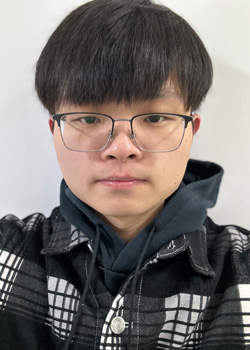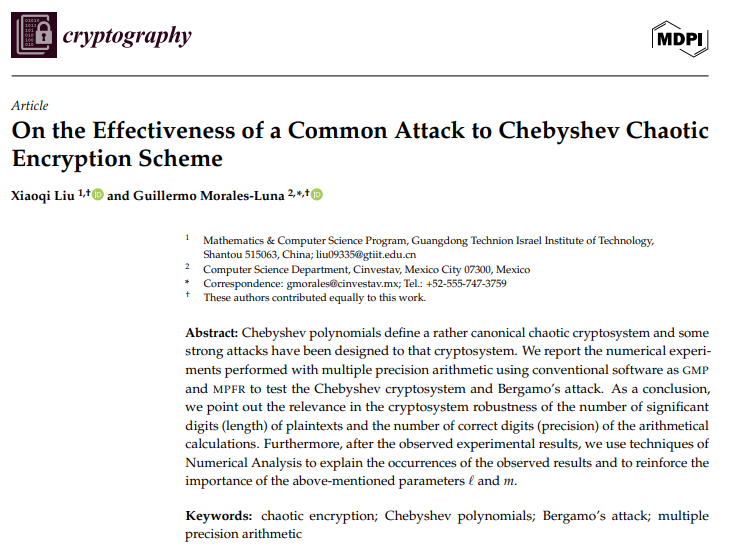PostTime:4/2/2025
This summer, the Class of 2025 will graduate from Guangdong Technion – Israel Institute of Technology (GTIIT), carrying with them the wisdom and courage forged in university to embrace infinite possibilities. At GTIIT, they have persevered through challenges brought by the pandemic, conquered academic puzzles, broadened international horizons, celebrated cultural richness, and discovered their true passions, showcasing the exemplary spirit of “Dream it. Do it.”through each innovative practice.
From this article, GTIIT will launch a series of interviews featuring the Class of 2025 undergraduates. Let’s delve into these powerful stories of passion and perseverance, and witness how their defining moments of efforts blossom into fruition.

Liu Xiaoqi
High School: Tengzhou No.1 High School, Shandong Province
Program: Mathematics and Computer Science (MCS)
Awards & Honors:
Second-Class Chancellor’s Scholarship (2020, 2021)
Outstanding Backbone of GTIIT Student’s Association Award (2022)
GTIIT Extracurricular Arts Scholarship (2022)
Offers:
Ph.D. in Computer Science (Full scholarship), University of Illinois Chicago (UIC)
M.S. in Cyber Security Engineering, University of Southern California (USC)
M.S. in Computer Science, Georgetown University
M.S. in Information, University of Wisconsin–Madison
M.S. in Computer Science, University of Southern California
M.S. in Data Science, University of Southern California
GPA at the Time of Application:
85.8
From struggling in class and failing exams, to publishing SCI papers and securing a Direct-Ph.D. Offer, Liu Xiaoqi wrote his story of changes at GTIIT. On the arduous journey of mathematical pursuit riddled with challenges and setbacks, he chose to slow down and focus on research, eventually harvesting flourishing growth in a broader world.
Mindset Shift:
“Without prioritization,
we lose more than we gain”
Initially, Xiaoqi envisioned a straightforward path: graduate in four years, then pursue graduate studies. But when he joined MCS program, he realized it’s never easy.
"I’m not gifted in mathematics," he mentioned that several times. "I struggled to visualize abstract concepts." Unlike high school’s computational drills, university mathematics demanded deep abstract thinking, particularly at GTIIT MCS program, where such training extends to specialized sub-disciplines. “Most universities offer Linear Algebra and Abstract Algebra courses. Our university extends undergraduate courses to Group Theory, Ring Theory, Field Theory, Module Theory, etc. They are so hard for me," he recalled.
The incomprehensible lectures, coupled with consecutive exam failures and compulsory program, once plunged him into intense anxiety. "The more credits I wanted to get, the more courses I enrolled in," recalled Xiaoqi of his sophomore year. "But the result was the opposite— I don’t have much time to learn each course well, so I failed more."
To break this vicious cycle, he decided to slow down and turn his goal into graduating in five years. "That was the biggest mindset shift," he smiled. "Once I went through that moment, I chose to move towards in steady pace." From then on, he stopped worrying about "delayed graduation." Instead, he embraced an extra year of university as a chance to grow—retaking courses he struggled with, delving deeper in research roadblocks, and asking questions whenever he couldn’t catch up. Step by step, a solid knowledge foundation was built.
“Though the journey was winding, the outcome was worth it." When his group theory grade climbed from 59 to 100 after taking the course four times, when his GPA steadily rose semester by semester, and when offers for direct Ph.D. and master's programs came pouring in—what was once a forced detour became his secret weapon for overtaking the competition. "Without that extra year, I would never have gotten these offers," he felt grateful for his choice. "The key was to stay grounded and be patient. Without prioritization, we lose more than we gain."

Xiaoqi served as the third President of GTIIT Student’s Association
Outside the classroom, Xiaoqi strives to strike a balance between academics and personal interests, actively engaging in various campus activities. Whether serving as an undergraduate teaching assistant—patiently explaining complex problems—or being a peer tutor to guide freshmen, or even joining the Student’s Association and being elected as its third president, the diverse and open university life has brought him more confidence: "It not only improved my communication skills but also made me, an introvert, more outgoing. This experience further solidified my aspiration to become a teacher in the future."
Scientific research:
“The rewards come slowly,
but they can be huge”
The satisfactory application results were not only built on his solid academic performance but also benefited from his early research experience. During the summer holiday of his freshman year, he applied to join the research group of Associate Professor Khadga Karki in the physics department and got in in his sophomore year. "Although I didn’t major in physics, I knew how to code," Xiaoqi explained. "I could work on secondary development for lab equipment, using programming to improve experimental efficiency."
The continuous cycle of experimentation, reflection, and validation not only gave him a sense of fulfillment by applying what he have learned to real-world problems but also significantly sharpened his skills in signal processing and algorithm optimization. In early 2023, collaborating closely with his research team, he leveraged C/C++ and graphical user interface (GUI) to develop experimental equipment, ultimately improving measurement efficiency. This work culminated in a publication in the high-level SCI journal ACS Photonics (Impact Factor: 6.5), where he was credited as the third author.

Xiaoqi with team members First from the right: Assoc.Prof. Khadga Karki
In his fourth year, to broaden his research experience in computer science, he enrolled in the "Project in Computer Science" course. Under the guidance of Professor Guillermo Morales-Luna, he undertook a project related to theoretical computer science, which ultimately led him to cryptography, a field that aligned more precisely with his passion. After the project, he proactively inquire the professor about additional research opportunities, expressing his willingness to contribute even without credits. Finally he joined the professor's research team.
"What sets our university apart from most others is our high faculty-to-student ratio," at GTIIT, students’ passion for research finds fertile ground, "As long as you have a good heart and a positive attitude, joining a research lab is relatively easy."

Xiaoqi with Prof. Guillermo Morales-Luna
Late nights in the lab were a mix of triumphs—like the exhilaration of code finally running—and frustrations from battling with bugs. "Once there was one problem I checked so many times, and discussed for weeks, finally, I found out the reason behind it: During computation, values stored in different data structures incurred minor precision losses—a seemingly negligible discrepancy that ultimately caused the chaotic system's output to diverge drastically from expectations.”These "eureka moments" in the digital world fueled his curiosity for knowledge, while his advisor’s guidance anchored his confidence in research. "Professor Guillermo Morales-Luna and I met weekly—reviewing progress, discussing problems and the next step. With his assistance, I wouldn’t get lost."
When the acceptance letter from Cryptography (JCR Q2) landed in his inbox, Xiaoqi attained his first SCI paper as first author during undergraduate studies. The research lasted for half year, analyzed the common attack against the Chebyshev polynomials based encryption scheme. By exploring the reasons why the attack fails in certain situations, they adjusted the parameters of the scheme, and improved the robustness. The practical experience accumulated during the project provided great help for Xiaoqi to obtain a Ph.D. Offer.

Xiaoqi attained his first SCI paper as first author
"Research is something that demands dedication—it cannot be rushed. The rewards come slowly, but they can be huge." In Xiaoqi's eyes, achievements always come in months or years, during which waiting and no results are commonplace. Being patient and focused is the only way that we may see efforts turn into fruition.
Set to embark on his Ph.D. journey at UIC, he felt grateful for what GTIIT has offered him. "I know that many of those who received CS Ph.D. offers like mine came from top-tier 985 universities." It was GTIIT’s rigorous academic discipline and emphasis on innovative thinking that forged his overseas recognition—transforming what he once deemed an "unthinkable" direct-Ph.D. admission into reality. Such recognition also became his golden ticket to unlock doors to elite global institutions.
_
In his final months on campus, the lab lights remained on as always, lines of code still flickering on the screen. The time invested in diligent work has crystallized into nourishment for growth—and carrying this power, he will stride steadily towards more possibilities.
Text: GTIIT News & Public Affairs
Photos: provided by Xiaoqi
© GUANGDONG TECHNION-ISRAEL INSTITUTE OF TECHNOLOGY | 粤ICP备17036470号
